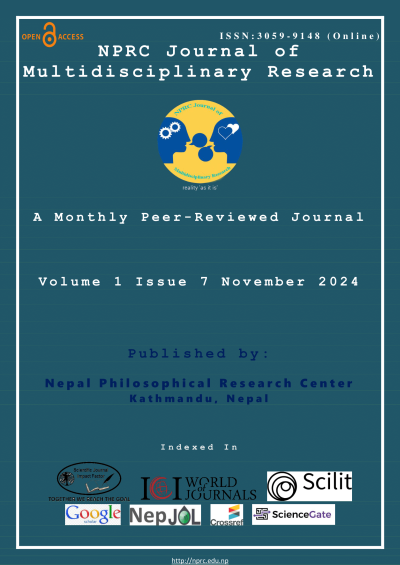A Novel Approach to Self-tuning Database Systems Using Reinforcement Learning Techniques
DOI:
https://doi.org/10.3126/nprcjmr.v1i7.72480Keywords:
Database, dynamic environment, reinforcement learning, self-tuningAbstract
The rapid evolution of data-intensive applications has intensified the need for efficient and adaptive database systems. Traditional database tuning methods, relying on manual interventions and rule-based optimizations, often fall short in handling dynamic workloads and complex parameter interdependencies. This paper introduces a novel approach to self-tuning database systems using reinforcement learning (RL) techniques, enabling databases to autonomously optimize configurations such as indexing strategies, memory allocation, and query execution plans. The proposed framework significantly enhances performance, scalability, and resource utilization by leveraging RL’s ability to learn from interactions and adapt to changing environments. Experimental evaluations demonstrate up to a 45% improvement in query execution times and superior adaptability to workload variations compared to traditional methods. This study highlights RL's potential to transform database management, setting the stage for next-generation intelligent and autonomous data systems.
Modern database systems face increasing complexity due to the diverse workloads and dynamic environments they operate in. Traditional database tuning methods often require significant manual intervention and expertise, making them inefficient for large-scale systems. This paper presents a novel approach to self-tuning database systems using reinforcement learning (RL) techniques. By leveraging RL, databases can autonomously learn and adapt to changing conditions, optimizing configurations such as indexing, query execution plans, and memory allocation. We outline a framework for implementing RL-based self-tuning, discuss key challenges, and evaluate the approach against traditional methods. Results indicate significant improvements in performance, adaptability, and resource utilization, demonstrating the potential of RL for next-generation database systems.
Downloads
Downloads
Published
How to Cite
Issue
Section
License
Copyright (c) 2024 The Author(s)

This work is licensed under a Creative Commons Attribution-NonCommercial 4.0 International License.
This license enables reusers to distribute, remix, adapt, and build upon the material in any medium or format for noncommercial purposes only, and only so long as attribution is given to the creator.





